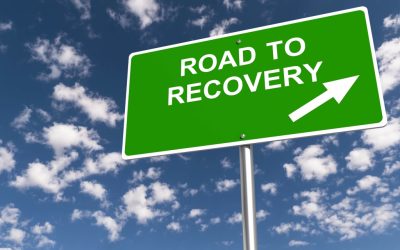It is crucial to maintain a healthy weight to support overall well-being and reduce the risk of related health conditions. Seeking support from healthcare professionals, counselors, or support groups can provide valuable guidance and assistance in managing sugar cravings. These resources can help individuals navigate the challenges of recovery and develop strategies to overcome cravings. Additionally, addressing any emotional or psychological factors that contribute to sugar cravings through therapy or counseling can be beneficial. Sugar cravings in recovering alcoholics may be influenced by underlying factors such as the impact of alcohol on the brain and genetic predispositions 5. Addressing these underlying issues is crucial for effectively managing sugar cravings.
Regular meals should include complex carbohydrates and proteins that help stabilize blood sugar levels. Foods rich in nutrients, such as fruits, vegetables, whole grains, and lean proteins, can prevent blood sugar fluctuations that lead to cravings. Additionally, incorporating snacks that are high in fiber can provide a feeling of fullness and delay sugar cravings. The relationship between alcohol and sugar cravings in addiction recovery is significant.
Seeking Professional Help
These adaptations include alterations in dopamine and opioid receptor binding, enkephalin mRNA expression, and dopamine and acetylcholine release in the nucleus accumbens. The nucleus accumbens, a key region involved in reward and pleasure, plays a significant role in the addictive properties of sugar. When struggling with hypoglycemia, you’re left with symptoms like irritability, aggression, headaches, dizziness, confusion, lack of concentration and impulsive decision-making. Just as an alcoholic might binge on alcohol, then experience withdrawal symptoms and cravings, a similar cycle can occur with sugar. A person may consume large amounts of sugar, experience a withdrawal period when trying to cut back, and then have intense cravings for more sugar.
People Say This Cures Heroin Addiction
With dedication and these helpful tips, managing your sugar cravings in recovery is achievable. Alcoholics also experience sugar cravings as well, and the reasons behind this are multifaceted. Fulfilling your caloric needs with sugar instead of healthy, nutrient-dense foods to heal during and after detox means you aren’t getting what your body needs. Too much sugar negatively impacts your overall health and prevents your body from recovering. When they’re no longer getting their “sugar fix” from alcohol, they seek it Sobriety elsewhere. Unfortunately, satisfying sugar cravings can prolong recovery and lead to other medical complications.
Does sugar neutralize alcohol effects?

However, giving in to these cravings with unhealthy sweets can risk a relapse, as the sugar high can mimic the effects of alcohol. It is worth noting that giving in to sugar cravings can sometimes lead to relapse, as the high provided by sugar can mimic the feelings experienced with alcohol consumption. Therefore, it is essential for recovering alcoholics to find healthier alternatives and coping mechanisms to manage their cravings and prevent potential setbacks in their recovery journey.

Check for discoloration, mold, strange smells, or odd texture to avoid health risks. NIDA finds that 37.9% of adults with SUDs also have mental illnesses, and that 18.2% of adults with a mental illness also have an SUD. Bringing mindful eating into play will not only help you understand when you’re legitimately hungry versus when you’re emotionally eating, but it can also convey a sense of control over your food choices.
This leads to decreased dopamine release and increased acetylcholine release (PMC), which can result in feelings of anxiety and depression. But by understanding the cause, you’ll be better equipped to handle it and move forward. It would be easy to give in, but you’ve seen all the recent news about the negative effects it can have. When they stop drinking, they may experience these emotions more intensely and turn to sugary foods as a way of self-medicating. But even in cases of expected sugar cravings, fueled entirely by alcohol withdrawal, psychotherapy tends to be the ideal tool. What has to differ is exactly where such therapies focus, but their merit remains the same.
In fact, that’s part of the reason why the expert team at Silver Maple Recovery provides healthy meals for patients. Studies have shown that individuals who are obese may experience more severe depression and feelings of hopelessness, which can increase susceptibility to alcohol relapse. By maintaining physical health through regular exercise, individuals can improve their overall well-being and reduce the risk of relapse. Drinking alcohol can put individuals with diabetes at risk for low blood sugar levels even hours after consumption. This is because the liver prioritizes alcohol metabolism over managing blood sugar levels, potentially leading to hypoglycemia 2.
- These conditions can exacerbate cravings for sugar due to emotional regulation difficulties.
- Moreover, the dysregulation of dopamine and other neurotransmitters, such as serotonin, GABA, and glutamate, plays a crucial role in sugar cravings among individuals recovering from alcohol use.
- Excessive alcohol consumption can disrupt the body’s ability to maintain stable blood sugar levels.
- These sugar cravings can replace alcohol cravings and potentially lead to a sugar addiction.
As a result, individuals may seek out sugary foods and drinks to fulfill their cravings, further fueling the cycle. As you can see, the unique connection between alcohol and sugar cannot be underestimated. It is deeply rooted in both substances, and largely explains just why recovering alcoholics crave sugar. Moreover, it can cause complications throughout and after recovery, especially if it overlaps with eating disorders or mental health disorders.
Navigating Recovery with Awareness and Preparedness
- When sugar cravings become problematic and start affecting overall well-being and recovery from alcohol addiction, it is recommended to seek professional help.
- Understanding these factors can help individuals in recovery, and their support network, to address and manage sugar cravings effectively.
- Two key aspects to consider are incorporating physical activities and following a whole foods plant-based diet.
- In conclusion, managing sugar cravings in recovery involves making informed choices about nutrition and being mindful of the potential risks of excessive sugar consumption.
- However, it’s crucial to develop effective strategies to deal with these cravings, as they can lead to relapse if not properly addressed 3.
Furthermore, research reveals that sugar can stimulate the pleasure center in the brain as much as drugs like cocaine, and sometimes even more than alcohol and drugs 2. Eating a balanced diet is one of the best things you can do to improve your health, regardless of whether you’re battling addiction. Some people turn to sugar to satisfy their craving for alcohol, swapping one addiction for another. This is because your brain is used to the dopamine rush of alcohol, and sugar provides a similar rush. Without enough alcohol or sugar in your system to sustain dopamine levels, alcohol withdrawal symptoms will occur.
Similarly, the consumption of sugar can stimulate the pleasure center in the brain, leading to feelings of reward and satisfaction. Many alcoholic beverages have excessive amounts of sugar, especially when consuming mixed alcoholic drinks with various sodas, juices, liqueurs or other mixers that are loaded with sugar. While it is a myth that alcohol metabolizes into sugar, alcohol does significantly affect blood sugar levels, do alcoholics crave sugar causing a yo-yo effect. Initially alcohol raises blood sugar levels, but after the body processes the alcohol blood sugar levels drop dramatically.
This is because of the strong connection between the cravings for sweet foods and addictive behaviors. Understanding the relationship between alcohol and sugar cravings is crucial in developing effective strategies to manage these cravings. Thus, the sugar cravings experienced by many in recovery from alcohol addiction are not random, but rather a direct result of the complex neurochemical reactions triggered by alcohol consumption.

